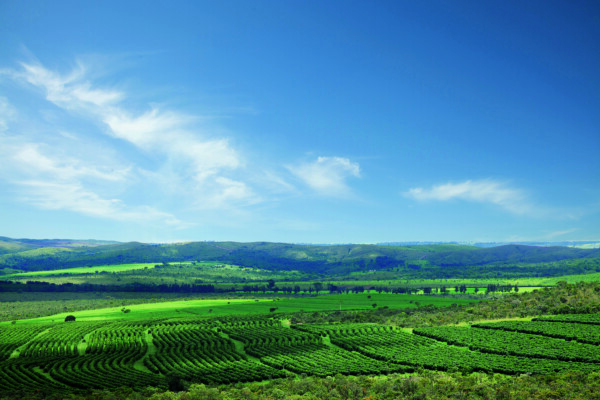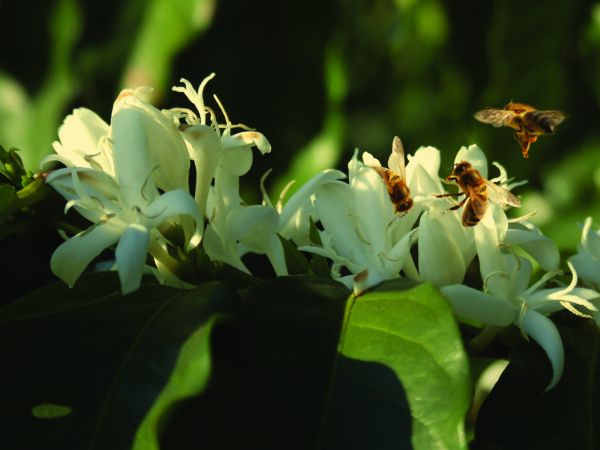
Low-carbon coffee farming and the resumption of training in best practices and digital inclusion are the focus of Cecafé’s Social Responsibility and Sustainability Pillar.
The year 2023 begins with Environmental, Social, and Governance (ESG) in the spotlight, especially regarding export-oriented agricultural chains. In the coffee sector, European countries are important destinations for Brazilian coffee beans. In this context, traceability, and transparency in alignment of ESG practices will be at the forefront, given the new legislation aimed at improving corporate responsibility in terms of social and environmental impacts.
At the social level, an important highlight is the new Supply Chain Due Diligence Act (LDCF), which came into force on January 1, 2023. The law affects foreign suppliers of companies based in Germany, or registered abroad, that employ up to three thousand people in the country. In the case of affiliated companies, employees hired in Germany by all companies belonging to the group must be taken into account when calculating the number of employees of the parent company. In addition, as of January 1, 2024, the law will also apply to companies with at least 1,000 employees.
From the beginning of the year, the companies will be required to assess their human rights and environment policies and their relationships with suppliers, and to enter into contracts that guarantee compliance with these policies.To this end, the LDCF anticipates strategies for training, education, and the implementation of contract-monitoring mechanisms to enable and verify supplier compliance with the company’s policies.
It is worth noting that Germany is the second largest destination for Brazilian coffee exports, importing 6.84 million 60kg bags of coffee in 2022. The approval of this law in Germany proves the beginning of a new trend of regulations in the ESG era.
In this scenario, initiatives aimed at strengthening the social sustainability of the Brazilian coffee industry gain importance. Some examples are the actions developed by the Brazilian Coffee Exporters Council (Cecafé) in partnership with the Global Coffee Platform and the National Pact for the Eradication of Slave Labor Institute (InPACTO), which focus on good labor practices and improving the living and working conditions of farmers and rural workers. Raising awareness of decent working conditions, in line with Brazil’s rural labor legislation, which is one of the most demanding in the world, will become increasingly important.
On the environmental front, climate change and greenhouse gas emissions will remain at the forefront, with implications for trade relations due to emerging regulations banning imports of commodities linked to deforestation and the Carbon Border Adjustment Mechanism (Cbam) agreed upon in the European Union late last year.

Good agricultural and management practices related to carbon sequestration, regenerative agriculture and other practices that build resilience to extreme climate events will continue to be seen. These are practices that will be increasingly promoted by buyers seeking consistency of supply, alignment with food safety standards, and compliance with their greenhouse gas reduction targets.
It is also worth noting that food safety regulations in the European market, the main destination for Brazilian coffee exports, have also been influenced by environmental concerns. This is the case for the review process of Maximum Residue Limits (MRL) for agrochemicals, where criteria such as biodiversity conservation and environmental protection emerge as decision factors for the reduction and exclusion of such limits.
The scenario confirms that biofuels will continue to be relevant to the Sustainability agenda. In Brazil, the segment is experiencing significant growth. According to a study by Kynetec, cited in an article on Valor Econômico¹ (a Brazilian business newspaper) , the sales of biological agricultural inputs in the country will grow by 67% in the 2021/22 crop year compared to the previous agricultural cycle, reaching BRL 2.9 billion.
Investments in research, technology transfer, and training of farmers and rural workers are paramount to better inform and implement organic practices in the field.
In line with these trends, Cecafé’s Social Responsibility and Sustainability pillar will invest in various actions towards low-carbon coffee growing, training farmers in good agricultural practices and the use of low environmental impact technologies, in addition to strengthening the social aspect of ESG, particularly the second phase of the Carbon Project and the resumption of the training agenda for farmers and rural workers.
The new phase of the Carbon Project will be carried out in the State of Espírito Santo, with a focus on the cultivation of the Conilon variety of coffee. With technical and scientific expertise, Imaflora and Prof. Cerri of Esalq/USP will evaluate the carbon balance resulting from changes in land use for the growing of Conilon and the adoption of good agricultural practices.
In early 2023, the distance learning platform “Informed Producer” program will be launched. In the platform, the coffee export segment will contribute to the digital inclusion of coffee communities and the transfer of knowledge on good environmental, social, and management practices to farmers and rural workers.
Also in the first half of 2023, Cecafé will host the ninth edition of the prestigious Coffee Dinner & Summit – www.coffeedinner.com.br – on May 25 and 26, 2023, in São Paulo (SP). This year’s theme is “Production growth: challenges and opportunities in times of ESG”. Prominent specialists and leaders of the Brazilian and global coffee industry will debate the trends of global trade in terms of sustainability and environmental, social, and Governance criteria. Cecafé, as the representative of Brazilian coffee exporters, will promote debate and exchange of experiences on the most important issues.
With an agenda in line with the trends of the international consumer market and focused on promoting the image and sustainability of Brazilian coffees, Cecafé continues to work to strengthen and expand the leading position of Brazilian coffees in global trade.
[1] https://valor.globo.com/agronegocios/noticia/2023/01/19/expansao-do-mercado-de-insumos-biologicos-se-intensifica-no-brasil.ghtml
Marcos Matos
CECAFÉ CEO
Silvia Pizzol
CECAFÉ Sustainability Manager


Leave A Comment